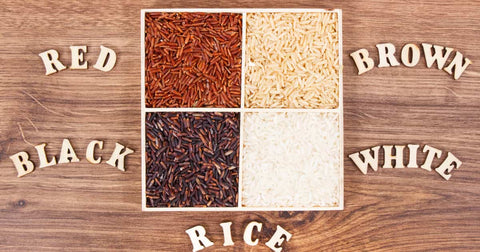Testosterone plays a crucial role in men's health, influencing muscle mass, energy levels, libido, and overall well-being. But what if your favorite foods are secretly working against you?
How Food Impacts Testosterone

- Hormonal Disruptors: Certain foods contain compounds that mimic or interfere with natural hormone production.
- Inflammation Trigger: Chronic inflammation can lower testosterone and create a slew of health issues, including digestive discomfort.
- Nutrient Drainers: Foods devoid of key nutrients vital for testosterone synthesis can leave you deficient.
12 Natural Testosterone Killers
1. Processed Foods: Packed with unhealthy fats, refined sugars, and chemicals a recipe for hormonal disaster.
2. Sugary Drinks: Soda, sports drinks, etc., spike blood sugar, leading to inflammation and reduced testosterone.
3. Soy (in Excess): High amounts of phytoestrogens in soy products can mimic estrogen in the body, suppressing testosterone.
4. Mint: While refreshing, some studies link mint to lowered testosterone, especially in excessive amounts.
5. Licorice: Contains compounds that may interfere with testosterone production.
6. Vegetable Oils: High in omega-6 fats, which in excess, promote inflammation, harming testosterone levels.

7. Alcohol: Excessive alcohol intake disrupts hormone production and increases inflammation.
8. Flaxseeds: While healthy in moderation, very high amounts might affect testosterone due to their phytoestrogen content.
9. Trans Fats: Found in fried foods and processed baked goods, they raise inflammation and harm overall health.

10. Refined Grains: Think white bread and pasta; they cause blood sugar spikes and offer little nutritional value.
11. Dairy (for Some): If you suspect dairy intolerance, it could trigger gut issues and inflammation, indirectly affecting testosterone.
12. High-Mercury Fish: Mercury can disrupt endocrine function, including testosterone production.
Testosterone Boosting Foods: What to Eat More Of
- Fatty Fish (Salmon, Tuna): Rich in omega-3s and vitamin D, both crucial for healthy testosterone.
- Eggs: Excellent source of healthy fats, protein, and nutrients supporting testosterone production.
- Leafy Greens: Packed with magnesium, a mineral important for optimal testosterone levels.
- Read More: Check out more foods that help boost your testosterone.
Food Intolerance: Double Whammy on Your Health
Food intolerances can lead to inflammation and poor gut health, indirectly impacting testosterone production and overall well-being. Our at-home food intolerance test kit helps identify your unique triggers.
Conclusion
Don't let hidden food culprits sabotage your testosterone! Focus on whole foods, limit the T-sapping suspects, and explore potential food intolerances for optimal health and vitality.
Frequently Asked Questions:
1. Can diet alone cause low testosterone?
While diet is a major factor, it's rarely the sole cause. Age, genetics, stress, and underlying health conditions also play a role.
2. How quickly can dietary changes impact testosterone?
It varies. Some men see improvements within weeks, while for others it may take longer for noticeable results.
3. Does this mean I can never eat those foods again?
Moderation is key! It's about reducing and making healthier swaps, not total restriction (unless you have a diagnosed allergy or intolerance).
4. I eat healthily, but still suspect food sensitivities. Could this affect my testosterone?
Absolutely! Intolerances create inflammation, impacting overall health, including hormone balance. A food intolerance test kit is worth considering.
5. Are there supplements that naturally boost testosterone?
While some supplements show promise, always research thoroughly and consult your doctor before starting any.
6. Can improving my gut health help boost testosterone?
Definitely! A healthy gut improves nutrient absorption and reduces inflammation, both of which are beneficial for optimal hormone production.
7. Can weight loss help boost testosterone levels?
Yes! Excess body fat, especially around the abdomen, is linked with lower testosterone. Diet and exercise play key roles here.


.png?v=1737390083)
.png?v=1737187409)


